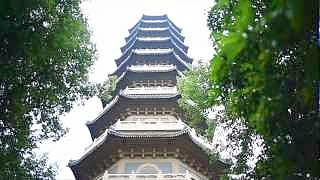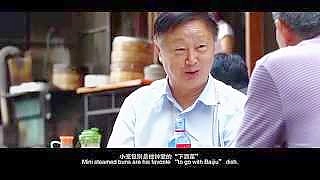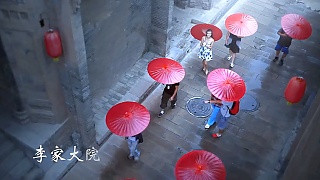
|
With MisterVaughn ...
Welcome to JingShan Park
Explore the historic heart of BeiJing
About Jingshan Park
Jingshan Park, located in the center of Beijing, is a historic and scenic park with a rich cultural heritage. Originally an imperial garden during the Yuan, Ming, and Qing dynasties, the park is famous for its artificial hill, Jingshan, which offers panoramic views of the Forbidden City and central Beijing. The hill was created from the soil excavated to build the moats of the Forbidden City and nearby canals.
Main Attractions
Wanchun Pavilion
The Wanchun Pavilion, located at the summit of Jingshan Hill, is the highest point in central Beijing. It offers breathtaking views of the Forbidden City to the south, Beihai Park to the west, and modern Beijing's skyline.
Five Pavilions
Jingshan Hill features five pavilions aligned along its central axis. Each pavilion offers unique perspectives of the surrounding area and houses a Buddhist statue, reflecting the park's historical significance.
Shouhuang Hall
The Shouhuang Hall was used by emperors for ancestral worship. Recently renovated, it now serves as an exhibition hall showcasing the history and cultural heritage of Jingshan Park.
Peony Garden
The Peony Garden, located in the park's southeast corner, is renowned for its stunning collection of peonies. It is a popular spot during the blooming season in late spring when the flowers are in full bloom.
Activities
Morning Exercises
Jingshan Park is a popular spot for locals to perform morning exercises such as tai chi, dancing, and jogging. Visitors can join in or simply enjoy watching these traditional Chinese activities.
Photography
The park offers excellent opportunities for photography, especially from the summit of Jingshan Hill. Capture panoramic views of the Forbidden City and the surrounding cityscape, or the beautiful gardens and pavilions within the park.
Seasonal Festivals
Jingshan Park hosts various cultural events and festivals throughout the year, such as the Peony Festival in spring and the Chrysanthemum Exhibition in autumn. These events showcase the park's horticultural beauty and traditional Chinese culture.
Transport
Jingshan Park is easily accessible from various parts of Beijing. Here are some ways to get there:
By Subway: Take Line 8 to Shichahai Station, then walk south for about 10 minutes to reach the park's north gate.
By Bus: Multiple bus routes stop near Jingshan Park, including routes 5, 58, and 101. Get off at the Jingshan East Gate stop.
By Taxi: Taxis are a convenient option, especially if you are traveling with a group or have heavy luggage. Just ask the driver to take you to Jingshan Park (景山公园).
|






 Planning war on China – part 28
Planning war on China – part 28




![Planning War On China part 40 (the encore). From now, all similar content will be on the new Geopolitics page, so do check that out and bookmark. Something Different, health, and psychology videos are likely to also move to their own pages. So we will still cover all these aspects of life, but have more time to focus on Chinese culture and China travel. *************************** Official racism is a very important fact to consider, and because it is is based on propaganda, can be easily missed for what it really is. Yet once seen, it is all so clear. Us and Them - is the sales pitch of supremacists and bomb companies. That is ALL it is. There is no `us and them`; that is just a scam to fool you into obedience / subservience / enslavement. The real schism is that there are real / open-eyed people, and then there are the brainwashed / believers people. Simple as that. Puppets at the top; puppets at the bottom. One life, one world, one family. One has love, or one does not. Real love doesn`t have targets; real love is a light that shines in all directions. Onto the video film . . . With George Galloway in conversation with Jerry`s Take on China . . . Bonus films . . . George at his very best - don`t miss it . . . What is more important - life or money (power) ? Simply believe ? Or be free to see reality ?? No longer puppet. Live more . . . Because it is not about `me` (that is the scam / fantasy, and a big topic in itself - `your problems are all your fault`, is part of it); it is really about `WE`. In China, the people are family. In the West, the people are livestock. And that is the `threat`. [ video v=fIxPv2Dn_P0 ] Oliver Stone interviews Vladimir Putin . . . Taiwan the next Ukraine ? . . . Lee Camp . . . [ video v=OSkpIq3T-Zc ] Racism is racism is racism. There is NO excuse, no matter how `official` it is sold to you. Something like 3 million died in the Vietnam war (not including the carpet bombing of Laos and Cambodia), alone. This is what racism entails. How many times will this lie play out ? Meanwhile . . . Peace. Official racism. Reality is so very different from the 'official' / MSM narrative / fairy tale - DON'T MISS THIS !](https://img.youtube.com/vi/Kc7f4JKhwtk/mqdefault.jpg)







![`US-sponsored separatist groups, backed by Washington for decades, are being mobilized to attack and undermine activities related to the BeiJing 2022 Olympics, starting with the torch relay in Greece. I explain the background of the “Free Tibet” movement and how the US government, through the CIA, backed it as early as the 1950s and transferred its operations to the National Endowment for Democracy (NED) [or `Dominion` / enslavement]. ` With The New Atlas . . . Bonus films - terror activities by US-backed `opposition` in Myanmar . . . Bonus film 2 - subverting the `left` . . . Bonus film 3 - on Ecuador . . . Bonus film 4 - on Cambodia . . . They say : `How dare you put your face in front of my fist ! Serve your master. Or else. ` More . . . On the US plan to nuke Chinese cities - as revealed by Daniel Ellsberg, famous for the `Pentagon Papers`, with NuMuves . . . On the Falun Gong cult . . . *** Planning war on China - part 11 - don't miss it ***](https://img.youtube.com/vi/2w31eNNcGVU/mqdefault.jpg)





























